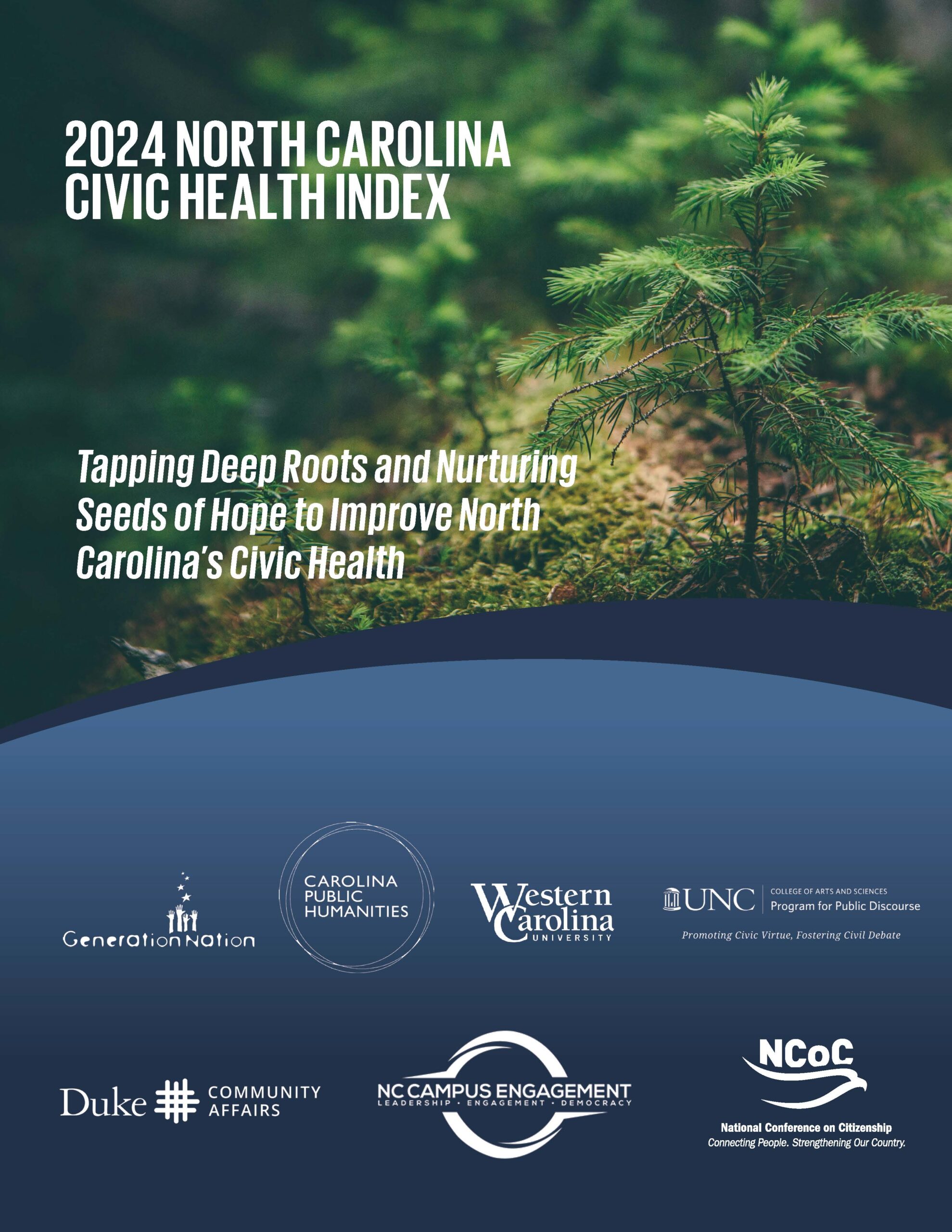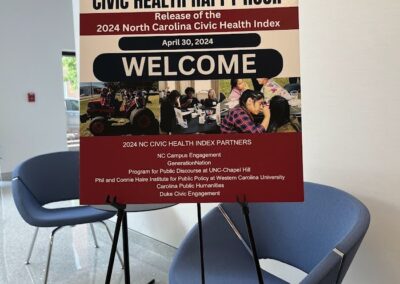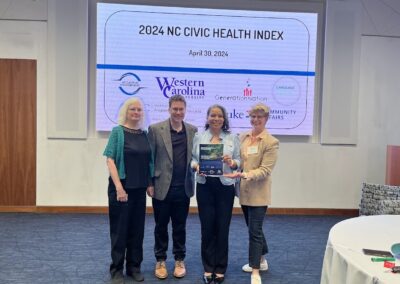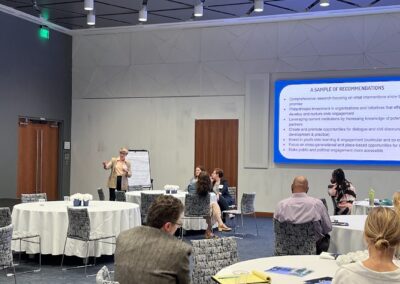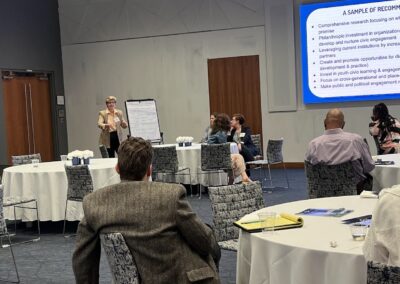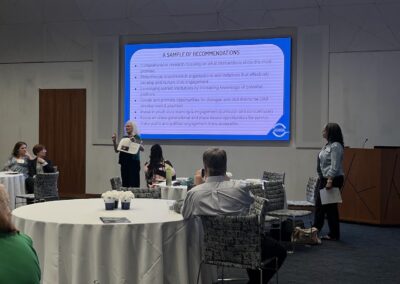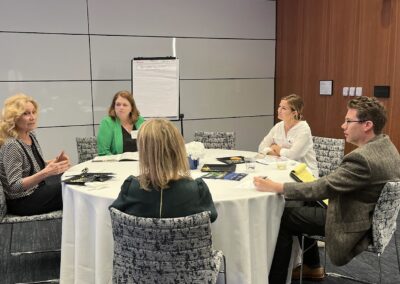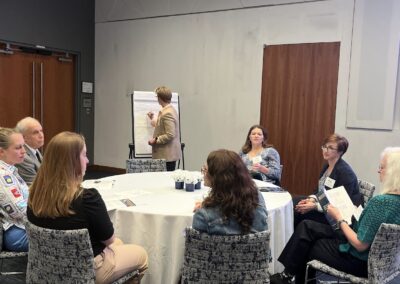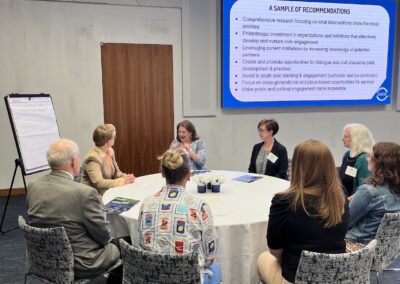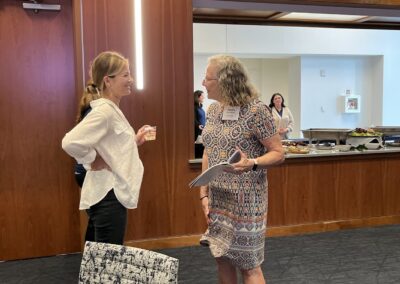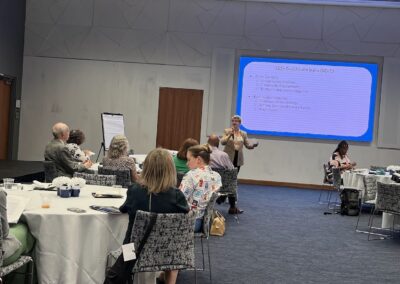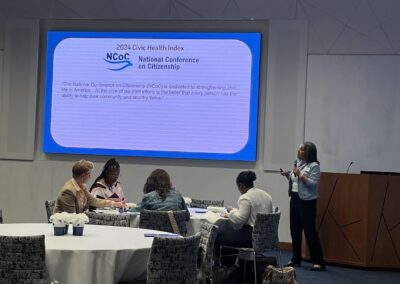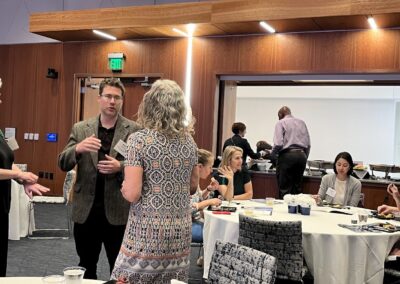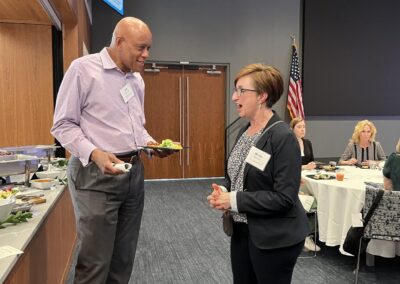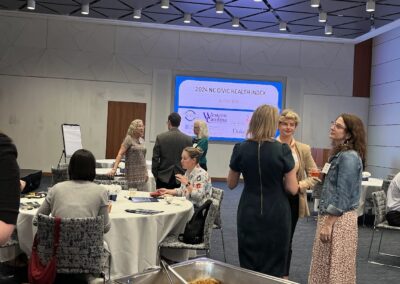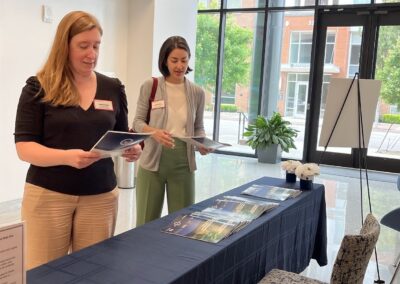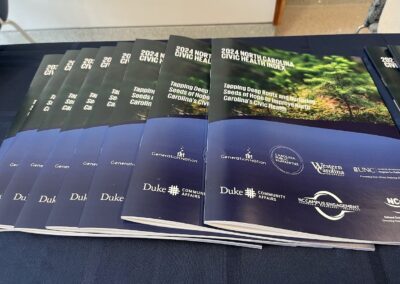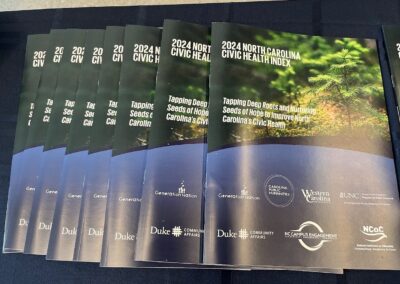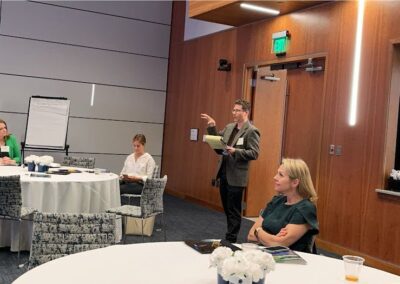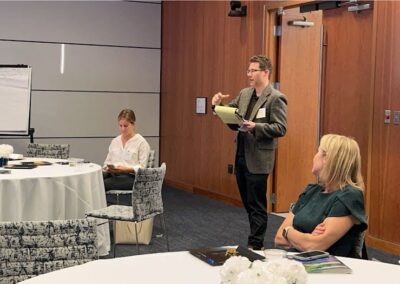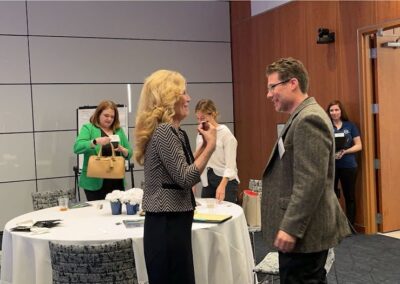2024 North Carolina Civic Health Index
In April the 2024 North Carolina Civic Health Index (NCCHI) was released. This report was produced by the National Conference on Citizenship, in partnership with a group of education-based entities in NC (see below) who came together in a months-long endeavor to examine, document, and advance our state’s civic health. We look forward to being part of the growth in civic health that this Index is intended to help NC realize. North Carolina Campus Engagement convened the group and shepherded the writing process.
NC Civic Health Summit
June 11, 2025 at Elon University
North Carolinians of all ages, representing multiple sectors, and geographic locations across the state, convened to explore the results of the 2024 Civic Health Index, learn about best practices in civic engagement, and propose action to help our state fulfill its civic potential and strengthen our communities. The Summit organizers are in the process of designing a process for ongoing engagement and implementation of the ideas.
Read the Summit recap here.
View the video of the community poem “We Love that North Carolina Love” 💓co-created by the Summit participants.
Thanks to the Summit Organizers: NC Campus Engagement, YMCA of the Triangle, GenerationNation, PHC Ventures , America’s Future Southeast Hub, & the Haire Institute for Public Policy at Western Carolina University and sponsors: A.J. Fletcher Foundation, America’s Future Southeast Hub, Braver Angels of Central North Carolina, GenerationNation, the Haire Institute of Public Policy, and NC Campus Engagement.
Overview
North Carolina is one of several states engaged in a unique partnership to investigate, document, and thereby catalyze efforts to enhance civic life in the United States. The National Conference on Citizenship collaborates with over 35 states and cities to generate locally-based reports that provide recommendations to strengthen civic health. 2023-2024 marks the 20th anniversary of the first CHI in NC; previous NCCHIs were produced in 2015, 2010, and 2003. It is the intention of the partners producing this 2024 NCCHI that the data analysis and recommendations included here will help our state set priorities, leverage best practices, and continue asking the difficult questions we need to face if our state is to fulfill its civic potential and strengthen our communities.
This Index is organized into three primary sections:
■ Social connectedness – interactions between friends, families, and neighbors, including: talking with or spending time with neighbors; hearing from or spending time with family and friends; doing favors for neighbors; and working with neighbors to do something positive for the neighborhood or community
■ Community engagement – interactions beyond friends, families, and neighbors, including: volunteering, participating in groups, and donating to charitable or religious organizations
■ Political action and participation – ways people influence local government and public institutions, including: voting, public political participation (attending public meetings, contacting public officials), consuming news, donating to political organizations, discussing political/societal/local issues (posting views on political/societal/local issues on social media, discussing political/societal/local issues with family and friends, discussing political/societal/local issues with neighbors), and choosing services based on social or political values of companies
Each section includes a “Summary of the Findings” and a “Deep Dive” into the subset data. We feature “Bright Spots” or positive examples of related efforts in NC throughout these sections. This 2024 NCCHI then provides “A Look Back at the 2010 and 2015 NCCHIs,” drawing comparisons with the earlier data; “A Look Across the US,” comparing NC with other states and with national averages; and “A 20th Anniversary Exploration,” which examines the civic health of the respondents in the 2003 NCCHI then and now. Drawing on the analysis throughout, the Index offers “Recommendations” that address a wide range of public and private sectors, encouraging specific actions to advance NC’s civic health.
Civic Health Happy Hour – Release Event
On April 30, 2024 the partners hosted an event to announce the release of the 2024 NCCHI. Leaders from the education, government, non-profit, faith-based, and business sector attended. The gathering provided an overview of the report and engaged participants in conversations about the findings. We look forward to continuing to share the results and to spark action. If your organization or company would like a formal presentation about the report, please contact Leslie Garvin (email at the link below) or any of the partners to discuss.
Thank you to the Civic Federal Credit Union for hosting the event in their lovely conference center in downtown Raleigh. We also want to acknowledge all the partners, as well as the Institute for Emerging Issues at NC State, for their support of the event.
Primary Authors
Leslie Garvin, MSW, Executive Director at North Carolina Campus Engagement
Patti H. Clayton, PhD, Community-Campus Engagement Consultant and Practitioner-Scholar-in- Residence with North Carolina Campus Engagement
Christopher A. Cooper, PhD, Robert Lee Madison Distinguished Professor and Director of the Haire Institute for Public Policy Institute at Western Carolina University.
Amy Farrell, BA, Executive Director at Generation Nation
Kevin Marinelli, PhD, Executive Director of the Program for Public Discourse and Teaching Associate Professor in the Department of Communication at the University of North Carolina at Chapel Hill
Kylie R. J. Seltzer, PhD, Zietlow Postdoctoral Fellow with Carolina Public Humanities at the University of North Carolina at Chapel Hill
Partners
The 2024 NC CHI was produced in partnership with NCoC and a group of education-based entities in North Carolina. Partners provided financial, human, and intellectual resources.
North Carolina Campus Engagement is a collaborative network of colleges and universities committed to civic and social responsibility, to partnering with communities for positive change, and to strengthening democracy.
GenerationNation develops a new generation of civic leaders by working with North Carolina K-12 students to help them learn first-hand how their governments and communities work; understand and discuss important civic issues; know how to find and use good sources of news and civic information; and build knowledge, experience, and social capital for civic leadership now and into the future.
Program for Public Discourse at UNC-Chapel Hill builds the capacity of UNC students for debate and deliberation, enabling them to be better citizens, civic leaders, and stewards of our democracy.
Phil and Connie Haire Institute for Public Policy at Western Carolina University aims to empower the Western North Carolina region to effectively manage real policy problems by mobilizing students, community leaders, faculty, and citizens to discuss and develop viable policy options to create more effective policies.
Duke Civic Engagement strengthens, connects, and amplifies the various ways students, faculty, and staff work to make a difference in the civic life of our communities. DCE supports Duke University’s collaborations with communities on pressing social challenges.
Carolina Public Humanities at UNC-Chapel Hill serves North Carolina by connecting UNC-Chapel Hill’s faculty and resources with communities throughout the state. It uses the humanities to spark curiosity, facilitate dialogue, and generate ideas in the hopes of building stronger democratic societies and a more humane world.”
The National Conference on Citizenship (NCoC) is dedicated to strengthening civic life in America. We pursue our mission through a nationwide network of partners involved in a cutting-edge civic health initiative, our cross-sector conferences and engagement with a broad spectrum of individuals and organizations interested in utilizing civic engagement principles and practices to enhance their work. Connecting people for the purpose of strengthening civic life is our goal. At the core of our joint efforts is the belief that every person has the ability to help their community and country thrive.

